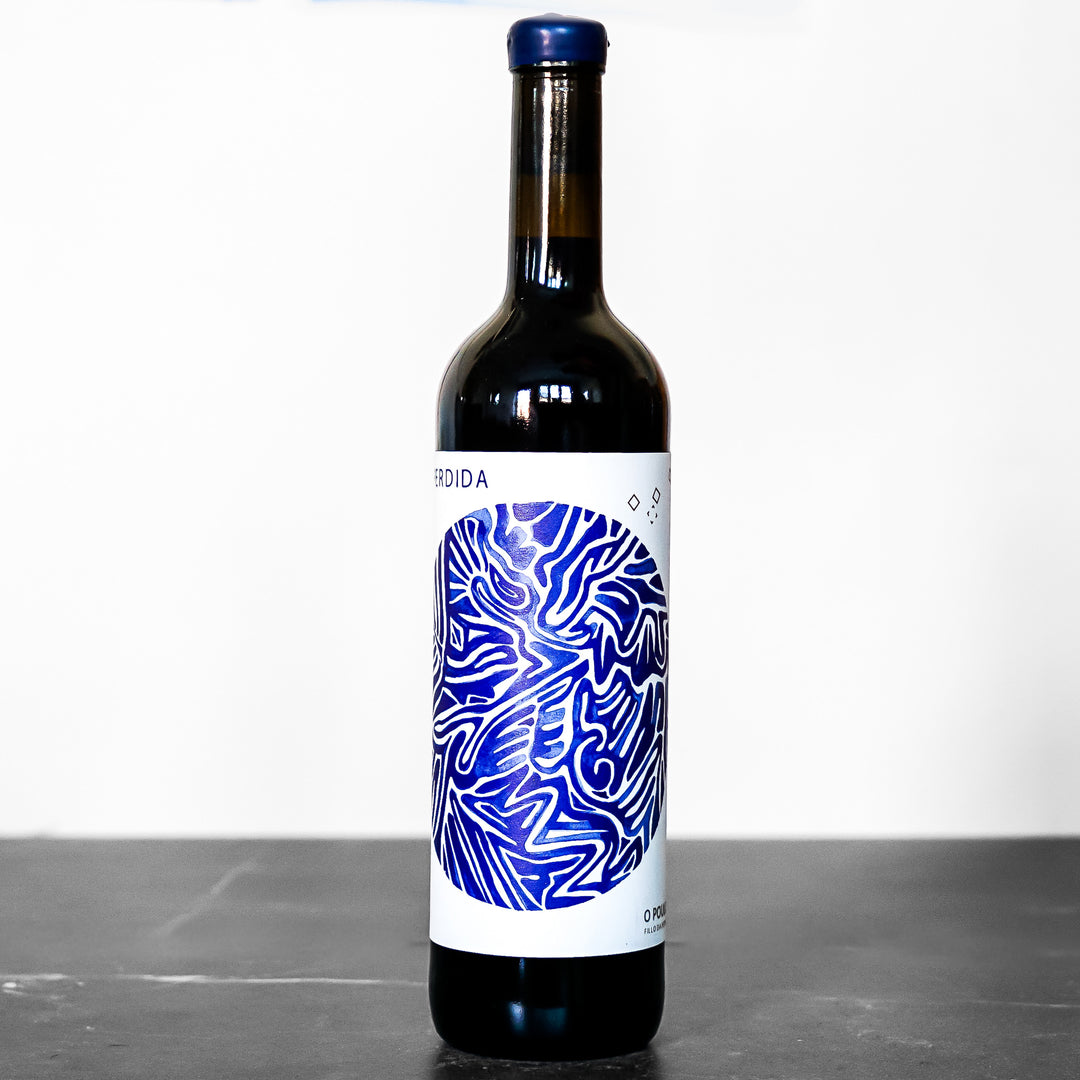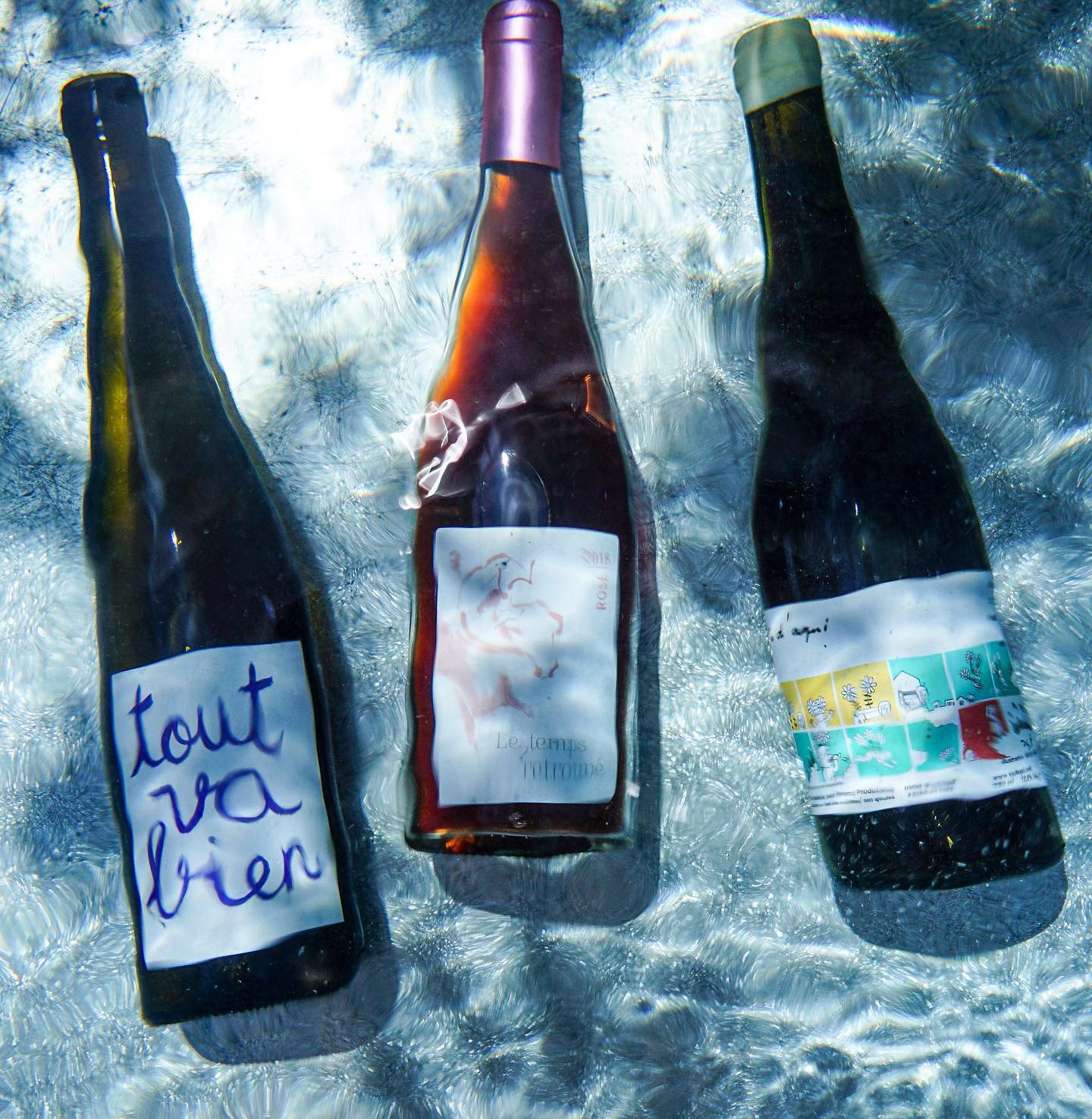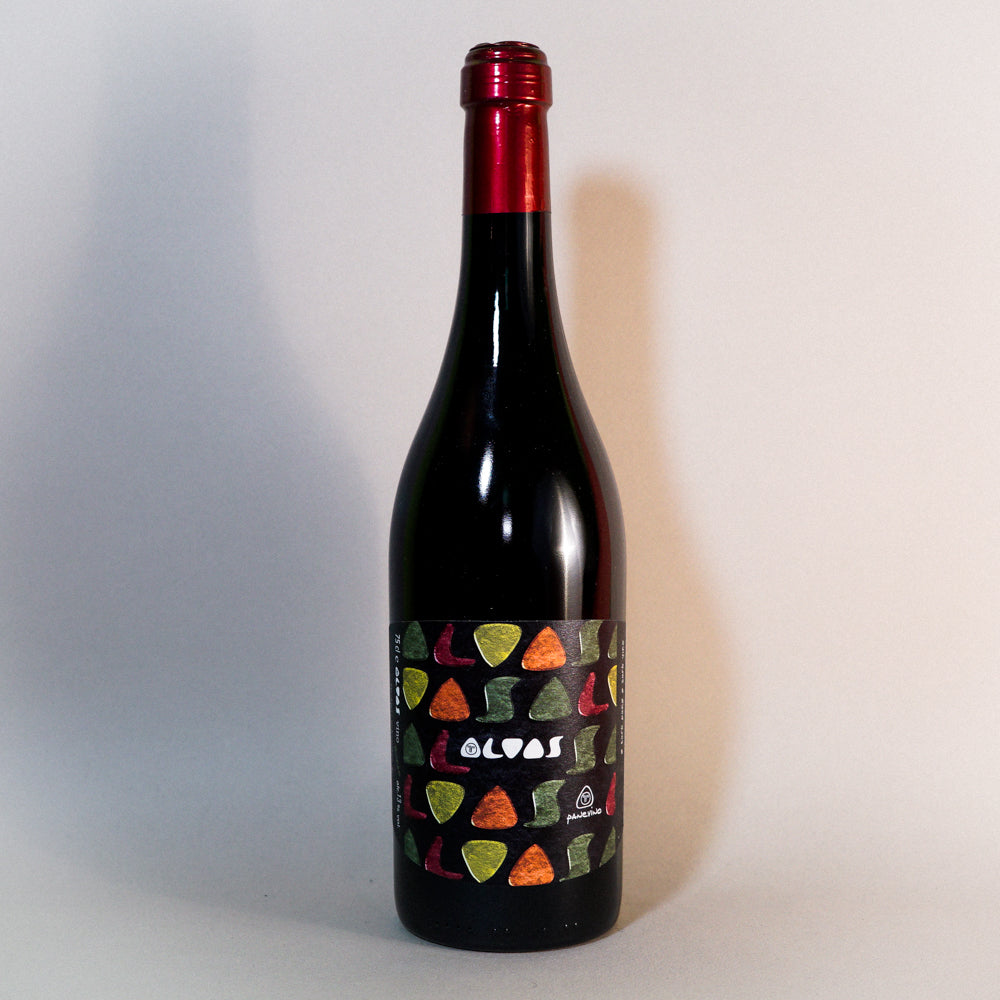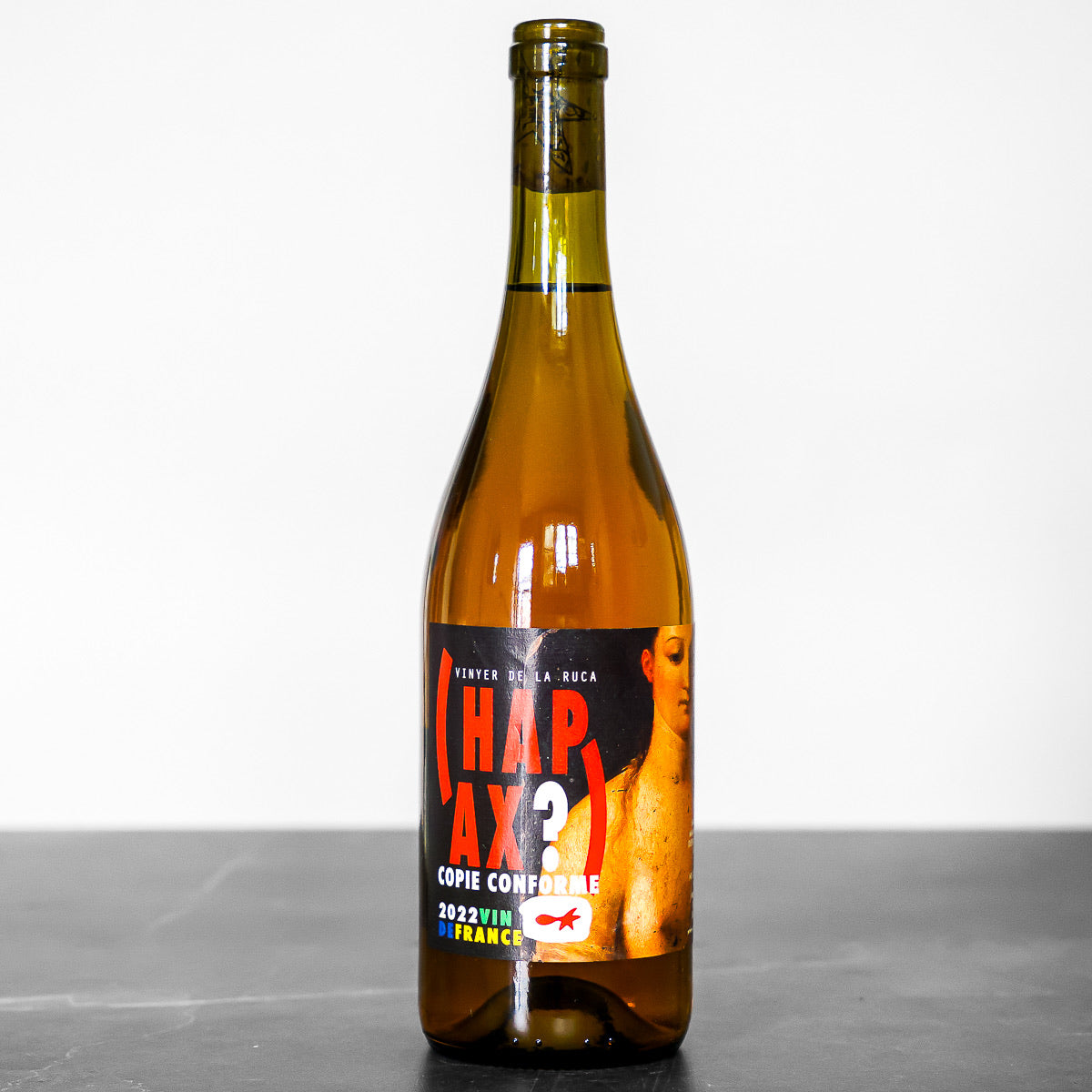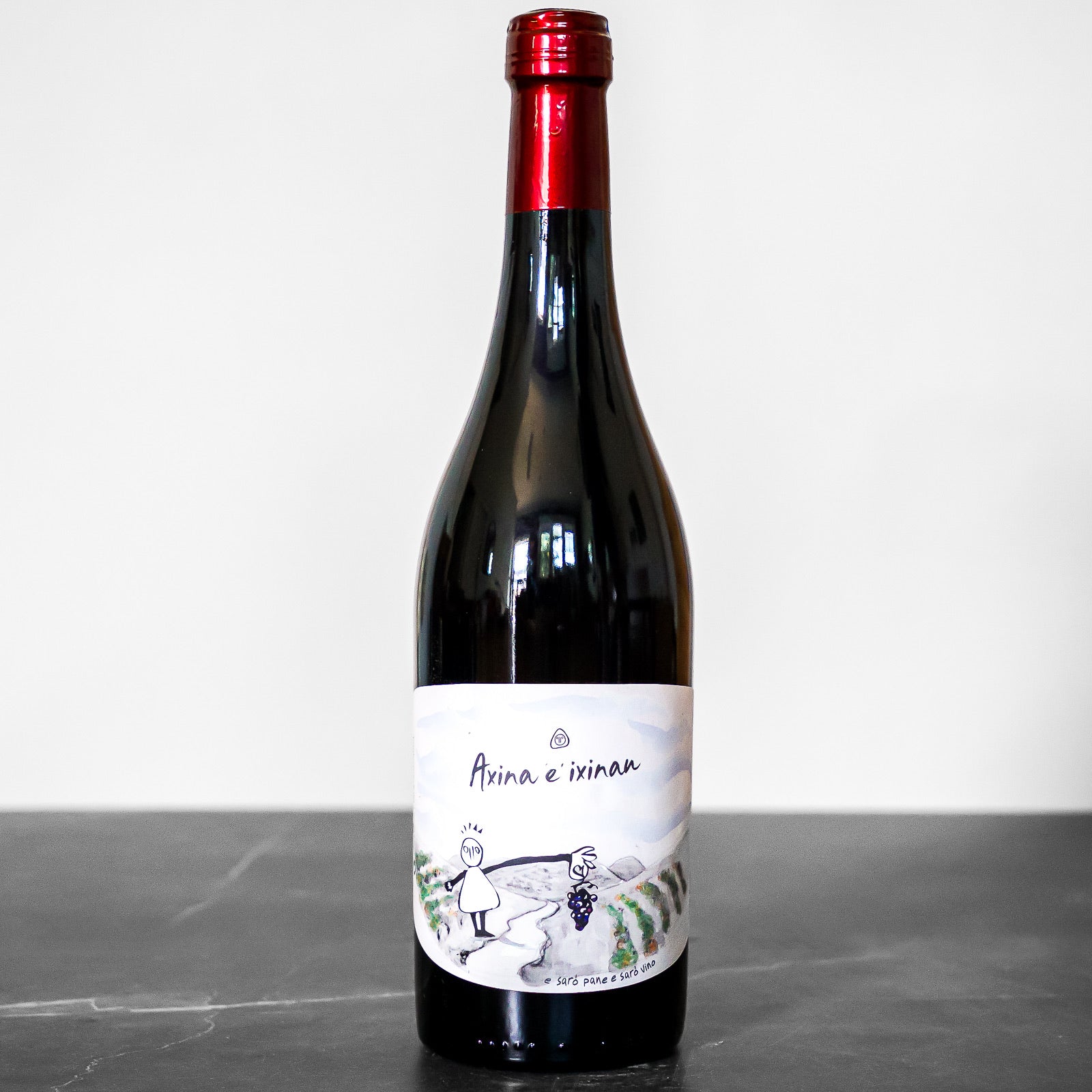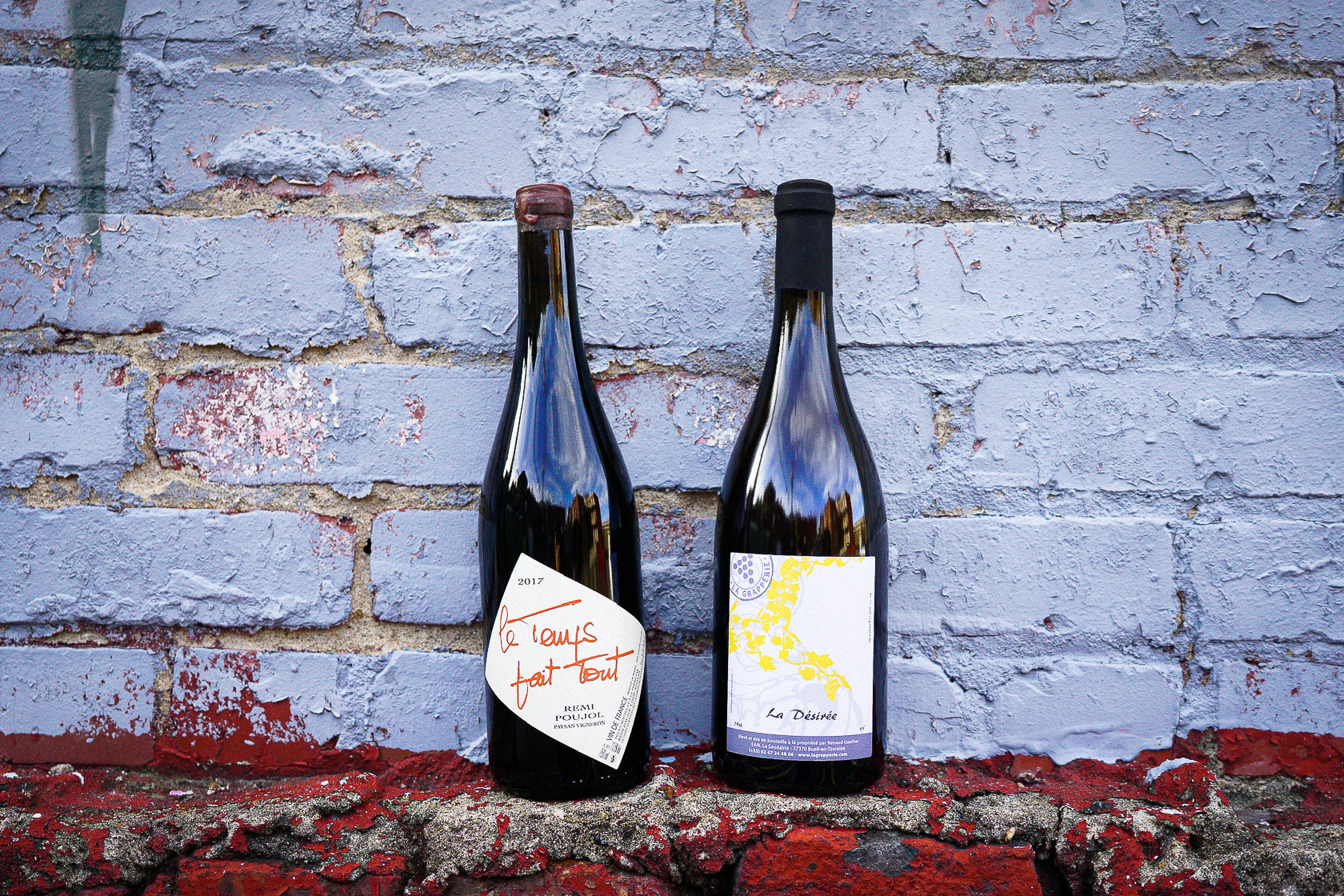O Poulo comes from an old vineyard on clay soils in Larouco that Nacho has been renting since 2014, with ancient, low-yielding vines. The vineyard (Viña do O Poulo) is on clay soils planted to Garnacha Tintorera with a little Palomino at the far end. The grapes are hand-harvested and destemmed, fermented with their skins in open-top plastic fermenters for about 20 days without temperature control. As fermentation proceeds, Nacho gradually removes the skins until just the must remains about half-way through. Fermentation completed, the wine is pressed to used barrels to rest before being bottled without fining, filtration or added SO2.
Nacho Gonzalez
One might call the wines of La Perdida “Island Wines.” The winemaker, Nacho Gonzalez, would definitely call them that. He will also venture to call himself “an island” for having some of the most progressive views on natural winemaking in all of Galicia. As far as we know, Nacho is a winemaker unlike any other in this region of the world. A biologist by training, he turned to winemaking when his grandmother bestowed upon him a vineyard site named “O Trancado.” Nacho brought it back to life from total neglect, through good farming practices and a desire to save the old vines rather than rip them up and replant. The vineyard now produces some of the most fascinating red wines in all of Spain, with Garnacha Tintorera no less, a grape not typically lauded by winemakers. It was his grandmother who told him the old vines were magnificent and should be cared for, and it was here in this moment that La Perdida was born.
Nacho actively seeks out vineyards that are isolated and remote, hence the term “island wines.” Up the hillsides, away from other farms and down winding roads, he finds old abandoned vineyards and works to bring them back to health, following his grandmother’s advice. He currently works with six vineyard sites in what would be the DO of Valdeorras, totaling about 4 hectares of vines, and farms them organically with some biodynamic practices incorporated. He cites Bernardo Estevez as a friend, and recognizes that his journey in the world of wine is long and evolving. Nacho is a constant student of farming and meets regularly with winemaker-friends to discuss how to get the most out of their vineyards, all while respecting nature and the vine.
Valdeorras, despite being one of the oldest and most storied DOs in Galicia, has become a new destination for large wineries looking for flat land to commercially grow Godello. Nacho often feels at odds with the region, believing that they are ruining the land and its history of grape growing. He is opposed to their more industrialized farming practices, which is why his vineyards only seem to get further and further away from the center of the DO. Nacho works out of a tiny cellar in the town of Larouco that he rents from friends. He produces only about 300 cases annually, a number he is happy with, as it allows him to remain in touch with both his vineyards and his wines.
Nacho favors tinajas (Spanish tapered, clay amphora) and very old oak barrels for his aging vessels. He works with the highly regarded 5th generation La Mancha tinaja producer, Juan Padilla, who has a two year aging process for his clay vessels to make sure they intervene as little as possible (Padilla tinajas are also used at the venerable COS and Foradori estates in Italy). Nacho is very experimental in the winery, despite being steadfastly traditional in the vineyard; sulfur has never been used. He feels that Palomino and Garnacha Tintorera are important to the history of the region (most of these old vineyards were planted during Franco’s dictatorship with his mandate to only grow very high-yielding varieties for bulk export) and uses these grapes in the majority of his bottlings. In addition to these two grapes, he works with a very old vineyard of Godello that he skin-ferments in amphora, as well as small amounts of Mencía and the Catalan grape Sumoll. All of his vineyards are of mixed varietals, co-planted together, another tradition of the area he is keen to protect.
The name La Perdida, translating to “The Lost,” is a well-chosen one. As the story goes, other farmers in the area walked by Nacho’s vineyards and could barely see the grape vines which were tucked away behind wild and wallowing grass that was growing up around them. The local farmers deemed the vineyard “perdida” and Nacho “a loco” for not using herbicides to control the unbridled growth in the vineyard. They viewed his work to be that of a crazy person, which only added to his “islandish” attitude.
Despite all of Nacho’s qualms with the changing landscape in Valdeorras and his renegade reputation in the area, he remains positive in his outlook on the future of Spanish wine. He is a regular fixture on the natural wine circuit of Europe and is content to stay outside the lines in Valdeorras. Nacho’s wines continue to improve each vintage, as he and his well-loved vines become wiser with age. Despite this, he says “I will remain an island.”
- José Pastor Selections
